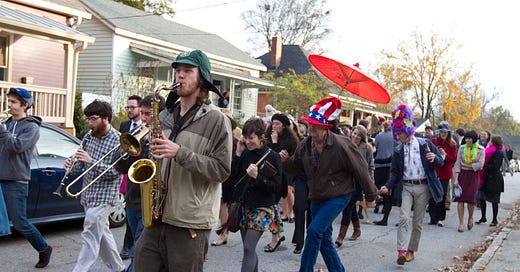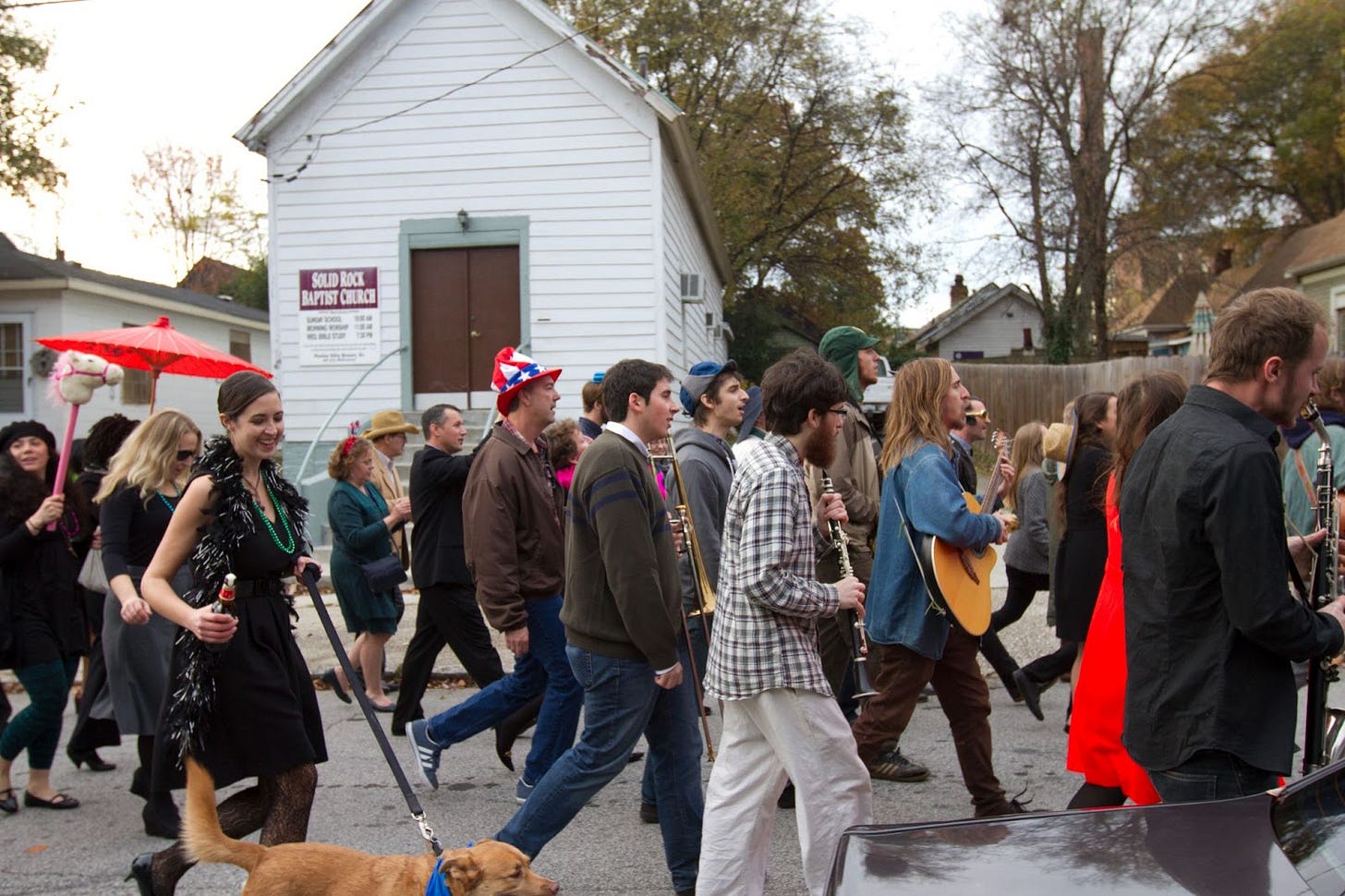As I approach 40, I’m embarking on a year-long project to reflect on the lessons I’ve learned in four decades of life. This is lesson #4. You can read the full series here.
I am going to die. Not today — at least, I hope. Not tomorrow (I hope). I don’t know how I will die, just that I will. My time here on this earth is finite, just like yours.
One day, whether I know it or not, I’ll jot down the last thing I ever write. I’ll give my last hug. I’ll say my last words. I’ll take my last walk and feel the warmth of the sun on my skin for the last time. One day, my heart will stop beating. My body will stop moving. My brain will stop all of its working and thinking.
Knowing this makes my life better. Because my days are numbered, they are sweeter.
I am going to die, and so are you.
For many of us, especially Westerners, this is a challenging thing to face. We are not particularly good at accepting death — or anything that’s painful or uncomfortable. If something is broken, we want to fix it. If someone is sad, we try to distract them. If an item is old or worn out, we rush to replace it.
But there’s no fixing death. There’s no way around it. The only solution is to accept it. And accepting it, as odd as it may seem, helps us to better appreciate the days we are given.
This is one of those lessons I learned the hard way. I’ve not only experienced the death of people close to me at a relatively early age, but I’ve been in the room when those people died. I’ve been reminded, time and again, of how short life can be.
In the heaviest fog of grief — when a loved one has just died, and the veil between life and death is barely there — I’ve felt a strange sense of aliveness, an electric feeling that’s otherwise hard to access. I become acutely aware of everything around me: how bright the leaves appear, how soft someone’s touch feels, how sweet the birdsong sounds. It all holds newfound weight and significance. None of it is guaranteed.
When the small complaints in my life become bigger than they should be, it means I’ve forgotten that electric feeling. I’ve lost touch with perhaps the most important truth of all: This is all temporary. These complaints will not always exist, nor will I.
This weekend, I watched Idea Man, the documentary about visionary puppeteer Jim Henson, who died at 53. Four years before his death, the creator of the Muppets penned a letter to family and friends with directions for his someday funeral.
“I suggest you first have a nice, friendly little service of some kind,” Henson wrote. “It would be lovely if some of the people who sing would do a song or two, some of which should be quite happy and joyful.” He asked that no one wear black and encouraged his close friends to “say a few nice, happy words about how much we enjoyed doing this stuff together.”
I suspect, given the untimely nature of Henson’s death, that his loved ones were grateful for the instruction. I was similarly grateful when my dad died at 58. For years, he had shared his funeral wishes with my brother, mom, and me, mostly in the form of songs he wanted played at his service, among them “Simple Man” by Lynyrd Skynyrd and “Truckin’” by the Grateful Dead.
Henson left instructions for a Dixieland jazz band to play “a rousing version” of “When the Saints Go Marching In” at his memorial service. He got that wish, and so did my dad. Helping to organize the second line parade that marched through the neighborhood after my father’s funeral remains one of the proudest, most meaningful moments of my life.
Accepting that you will die offers a pathway towards peace. It gives you a chance to stop fighting the inevitable and enjoy the present.
In Bhutan, home of the Gross National Happiness index, citizens are famously encouraged to think of death five times a day. Here in the U.S., where mental health is at a crisis point, death is sanitized and secretive. We don’t interact with deceased bodies or have elaborate mourning rituals. We fight the natural course of aging like it’s evil, dyeing our hair and injecting our faces in an attempt to look more youthful. We consider being elderly an embarrassment, a source of scorn or pity.
There are reminders of death everywhere — in the news, in our aging families, in the roadkill on the asphalt — but the temptation to push it away remains strong.
I try to fight that temptation as best I can, by considering the legacy I’ll leave behind, by letting my grays and wrinkles do their thing, and by contemplating my mortality when I go to sleep and when I wake up. I give thanks for another day and remind myself that these days aren’t guaranteed. I don’t always do this, but when I do, I can see a difference in how I view and approach the world.
Knowing I will die makes me want to live.
Henson began his letter to family and friends with some comforting words: “I’m not at all afraid of the thought of death and in many ways look forward to it with much curiosity and interest.”
Throughout the documentary, as in his life, it appeared as if Henson somehow knew the limited time he had. He chased creative vision after creative vision with the drive of someone who seemed aware that his days were running out.
Sometimes, I think about my own funeral. I hope people are compelled to share some kind words about me. I would love for the service to include some of Billy’s songs. I’d like a bit of jazz, too — the kind that always makes me cry good tears. And perhaps someone could read some of my own words about life and death. Is that a weird request? I’m not sure. I do know that considering my own death — when there will be no new words to come, only old words to revisit — allows me to cherish the act of writing, of being alive, right now. And that’s what matters.
xoxo KHG








Such a beautiful perspective on living and dying. I was diagnosed with cancer at 44; I had 3 kids, 15, 13 and 10. I was changed forever. Now 22 years later, I am still living my life as if today may be the last day. I am deeply passionate about life, makes my husband very confused in so far as why I have so many projects in progress all the time. I believe until death looks you directly in your face, one cannot completely understand the gift of another day.
Great post Katie and thank you for dragging this subject out into daylight and giving us all a timely reminder. My brother in law has a tat on his forearm that says "just visiting" So appropriate! Hugs. And I totally love the pic!